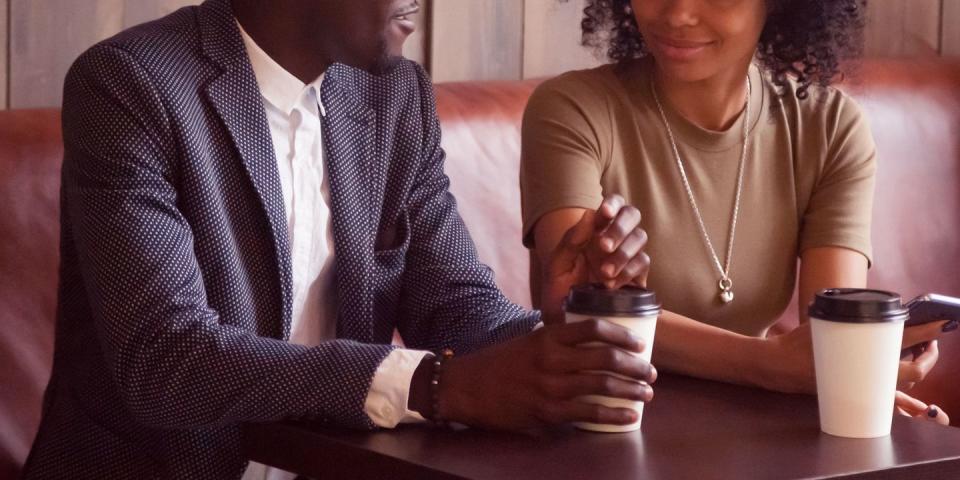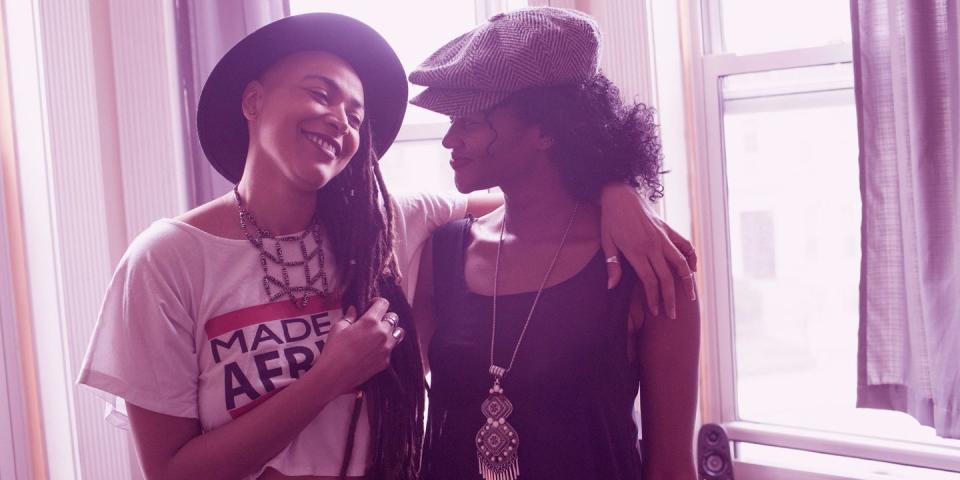6 things to know about entering a new relationship after abuse

Abusive relationships in any form, be it physical, emotional, financial, sexual, coercive, or psychological, can leave long-term scars.
And, it's no surprise that these scars can flare up again when beginning a new relationship. No matter how different this new relationship might be, it's totally normal to be wary, and you could find it difficult to place trust in a new partner.
Katie Ghose, the chief executive of Women's Aid, told Cosmopolitan UK, "Domestic abuse has a long-lasting and devastating impact on survivors. The trauma of experiencing domestic abuse can take a long time to recover from, and survivors need time to rebuild their confidence, self-esteem and ability to trust a new partner.
"A survivor of domestic abuse once told me that the bruises heal, but it is the effects of emotional and psychological abuse that stay with you long after leaving the abuser. It is understandable if someone feels fearful about starting a new relationship, even if they have re-established their life free from abuse."

There's no right or wrong way to feel when trying to process what happened to you. The most important thing is to get out of the relationship safely, and then take your time to heal, moving forward however you can.
If you've decided you're ready to meet someone and start a new relationship, it's understandable if this feels daunting. We chatted to Ammanda Major, head of service quality and clinical practice, at relationship counsellors Relate about moving forward with a new relationship after experiencing an abusive one.
1. Take time out for yourself
"It can be helpful to take time out for yourself and maybe get some counselling," Ammanda says. "Understand what happened to you, understand you didn’t make the abuser do that and recapture your inner confidence, because often abusers will eradicate their victims' sense of self.
"If you make space in between partners, you're more able, and perhaps in a stronger position, to determine what a new relationship could actually look like. You can properly identify what's on offer and be clear about communicating your own needs."

2. There's no set time on when you 'should' feel ready to start a new relationship
"It's different for everybody," Ammanda says. We're all different and unique, so I would never put a time scale on [when you're supposed to feel ready for a new relationship]."
3. Utilise your support networks
Support groups, organisations like Women's Aid and other group counselling sessions, can be a good place to start to help you process what's happened. "If you have good friends who you feel you can trust, you can ask them for their help to support you in that process of moving on," Ammanda recommends.

Often abusers cause separation between partners and their close family and friends. So, it also might be the case that, as a survivor, you will want to work on re-entering these relationships.
4. Take things slow
"Don't feel you have to fully immerse yourself into a new relationship," Ammanda advises. "If you’ve been able to share with your new partner that you’ve been in an abusive relationship, if they have your best interests at heart, then they’ll understand you may find trust difficult and you may need time for yourself because that whole recovery process is going to be ongoing for a long time.
"Do things at the pace that is right for you, and your partner should understand and accept that. If anyone tries to apply pressure to you, it could be a warning sign."
5. Don't put yourself under any pressure
Major says that sometimes family and friends can try and set you up with someone else because they are probably relieved you're now out of an abusive relationship. But it's OK if you're not ready for that, yet.

"It's about finding strength to tell your friends and family you're not in a place yet where you have the energy, or trust, for a new relationship. You can tell them that you'll let them know when you're ready," Ammanda says.
6. Understand it can take time to build up trust
"Trust has to be earned and that can be a slow process," Ammanda explains. "For someone who has been abused in a previous relationship, it can be a difficult ask to ever trust 100% again. It's an individual decision."
Katie Ghose echoes this, saying that it's important not to rush into anything. Instead, she recommends "slowly" building up trust with a new partner. She adds, "From our work with survivors, we know that you can find love after abuse."
For more information on moving on from abuse visit Women's Aid.
You Might Also Like


